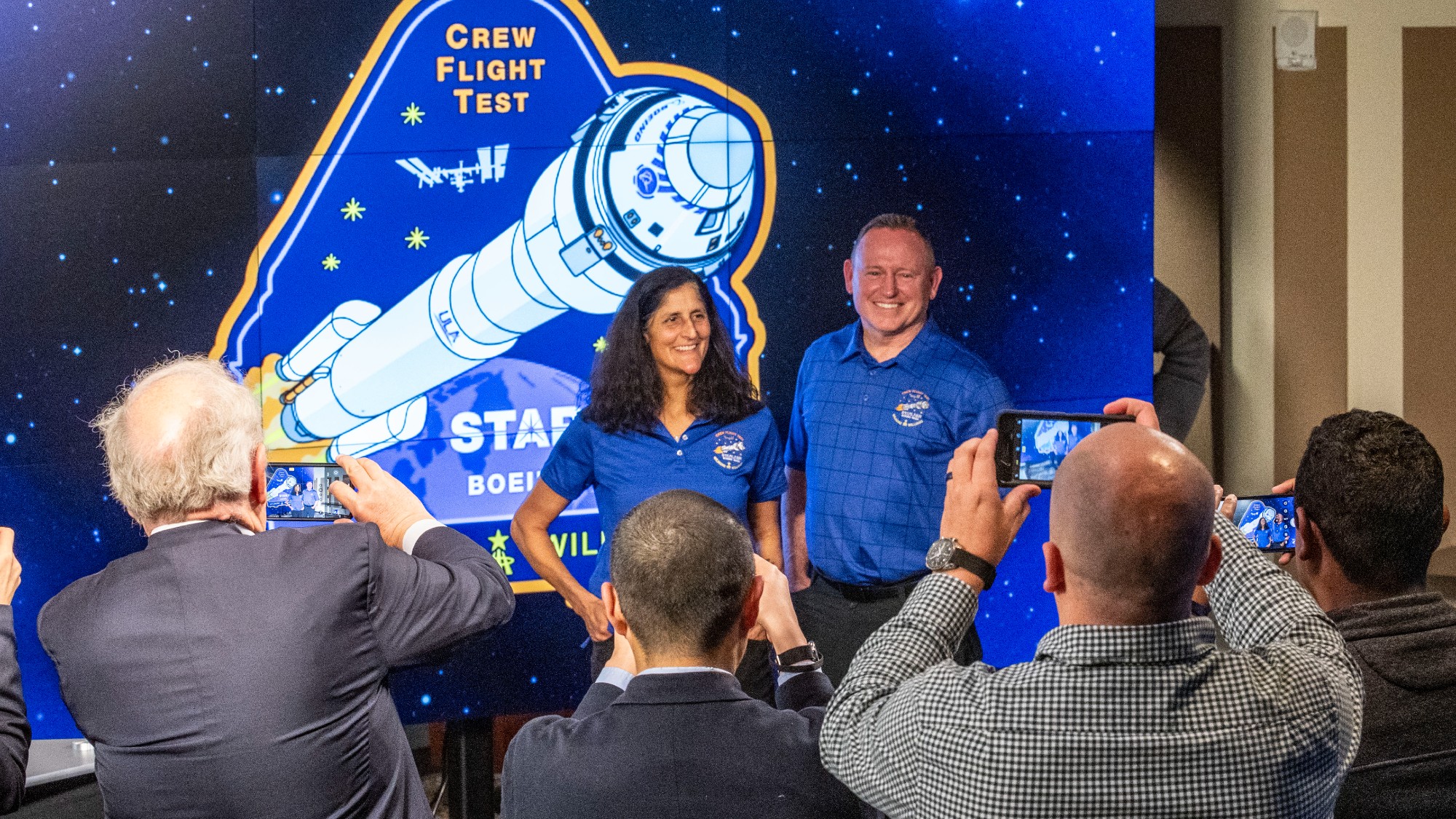Nasa's astronauts: stranded in space
Sunita Williams and Butch Wilmore's eight-day trip to the ISS has now stretched into weeks amid concerns over their Starliner spacecraft

A free daily email with the biggest news stories of the day – and the best features from TheWeek.com
You are now subscribed
Your newsletter sign-up was successful
"We've all been there," said Richard Hollingham on BBC Future: stuck on a broken-down train or stranded in an airport after a cancelled flight, unsure when we'll get home. Spare a thought, then, for Nasa astronauts Sunita Williams and Butch Wilmore. In June, the pair arrived on the International Space Station (ISS) with limited luggage for what was supposed to be a fleeting eight-day visit. But the spacecraft that took them there – Boeing's new Starliner – suffered helium leaks and thruster problems before docking, raising doubts about its safety for the return flight.
If Nasa can confidently establish that the issues are fixed, the two astronauts may yet be able to return in the craft. If not, the Starliner will fly back empty, and Williams and Wilmore will have to remain on the ISS until they can hitch a ride with other returning astronauts on a SpaceX spacecraft – in February 2025.
The pair aren't in any danger, according to Nasa, said Stephen Bleach in The Sunday Times, and their stock of food and clothes was topped up last week by a supply capsule. Indeed, I found myself almost envying their unexpected summer in space – all that peace and quiet, "the licensed, guilt-free idleness of it". But then I remembered that they'll be working round the clock with seven other astronauts in what amounts to a "flatshare from hell", drinking recycled sweat and urine. They'll be too busy to feel sorry for themselves, said Wiliam Hunter in the Daily Mail. With lengthy work shifts and two hours of compulsory exercise a day, ISS crew members are left with little free time to ruminate.
The Week
Escape your echo chamber. Get the facts behind the news, plus analysis from multiple perspectives.

Sign up for The Week's Free Newsletters
From our morning news briefing to a weekly Good News Newsletter, get the best of The Week delivered directly to your inbox.
From our morning news briefing to a weekly Good News Newsletter, get the best of The Week delivered directly to your inbox.
Discomfort, risk and uncertainty are part of the deal if you're an astronaut, said Micah Maidenberg in The Wall Street Journal. "This is just the life that we live," Wilmore said in an interview in March when asked about the risk of missions going wrong. Both he and Williams have done previous stints on the ISS: she made headlines in 2006 by running a marathon inside it on a treadmill.
Williams's husband, Michael, remarked last week that his wife would be anything but disappointed by the prospect of spending more time carrying out scientific experiments and repairs on the orbiting station 250 miles above Earth. "That's her happy place," he said.
A free daily email with the biggest news stories of the day – and the best features from TheWeek.com
-
 6 of the world’s most accessible destinations
6 of the world’s most accessible destinationsThe Week Recommends Experience all of Berlin, Singapore and Sydney
-
 How the FCC’s ‘equal time’ rule works
How the FCC’s ‘equal time’ rule worksIn the Spotlight The law is at the heart of the Colbert-CBS conflict
-
 What is the endgame in the DHS shutdown?
What is the endgame in the DHS shutdown?Today’s Big Question Democrats want to rein in ICE’s immigration crackdown
-
 NASA’s lunar rocket is surrounded by safety concerns
NASA’s lunar rocket is surrounded by safety concernsThe Explainer The agency hopes to launch a new mission to the moon in the coming months
-
 Nasa’s new dark matter map
Nasa’s new dark matter mapUnder the Radar High-resolution images may help scientists understand the ‘gravitational scaffolding into which everything else falls and is built into galaxies’
-
 Moon dust has earthly elements thanks to a magnetic bridge
Moon dust has earthly elements thanks to a magnetic bridgeUnder the radar The substances could help supply a lunar base
-
 How Mars influences Earth’s climate
How Mars influences Earth’s climateThe explainer A pull in the right direction
-
 The ‘eclipse of the century’ is coming in 2027
The ‘eclipse of the century’ is coming in 2027Under the radar It will last for over 6 minutes
-
 NASA discovered ‘resilient’ microbes in its cleanrooms
NASA discovered ‘resilient’ microbes in its cleanroomsUnder the radar The bacteria could contaminate space
-
 Artemis II: back to the Moon
Artemis II: back to the MoonThe Explainer Four astronauts will soon be blasting off into deep space – the first to do so in half a century
-
 The mysterious origin of a lemon-shaped exoplanet
The mysterious origin of a lemon-shaped exoplanetUnder the radar It may be made from a former star